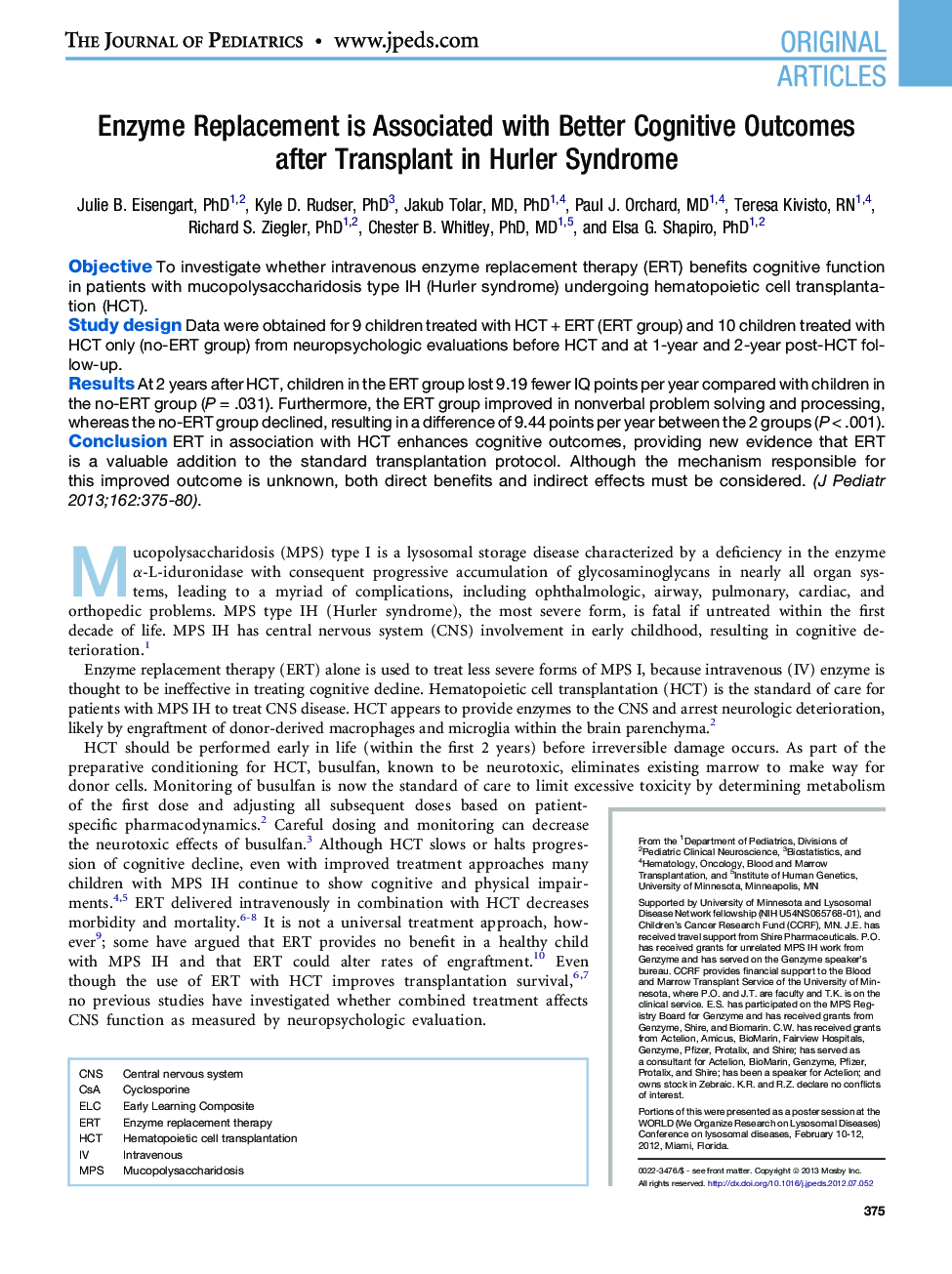| Article ID | Journal | Published Year | Pages | File Type |
|---|---|---|---|---|
| 6223896 | The Journal of Pediatrics | 2013 | 7 Pages |
ObjectiveTo investigate whether intravenous enzyme replacement therapy (ERT) benefits cognitive function in patients with mucopolysaccharidosis type IH (Hurler syndrome) undergoing hematopoietic cell transplantation (HCT).Study designData were obtained for 9 children treated with HCT + ERT (ERT group) and 10 children treated with HCT only (no-ERT group) from neuropsychologic evaluations before HCT and at 1-year and 2-year post-HCT follow-up.ResultsAt 2 years after HCT, children in the ERT group lost 9.19 fewer IQ points per year compared with children in the no-ERT group (P = .031). Furthermore, the ERT group improved in nonverbal problem solving and processing, whereas the no-ERT group declined, resulting in a difference of 9.44 points per year between the 2 groups (P < .001).ConclusionERT in association with HCT enhances cognitive outcomes, providing new evidence that ERT is a valuable addition to the standard transplantation protocol. Although the mechanism responsible for this improved outcome is unknown, both direct benefits and indirect effects must be considered.
